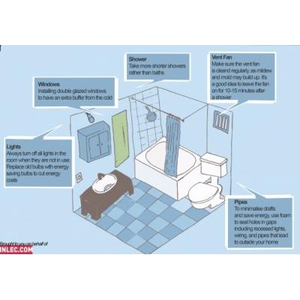Bathroom Safety
Bathroom Safety
Water is able to carry electricity efficiently but if the two mix the results can be extremely dangerous if not deadly. The bathroom is the most dangerous room in the home when it comes to electrical safety as the consequences of an electric shock on wet skin can reduce the body’s resistance making it more dangerous than any other room in the home.
There are special requirements for electrical installations in bathrooms as most electrical work must comply with Part P of the Building Regulations.
It is best that you use an electrician that is registered with a government approved scheme to carry out any electrical work in your home.
Sockets
- Sockets are not allowed in bathrooms or shower rooms apart from shaver-supply units unless they can be fitted at least three metres from the bath or shower.
- Electrical shaver points must be a safe distance from the bath or shower to avoid splashes
Lights
- Enclosed ceiling lights are preferable to the ones that hang down.
- All light fittings, that are not enclosed, should be out of reach of someone using, or still wet from using, the bath or shower.
- Everyday light switches are a danger because of dampness and wet hands. A ceiling-mounted pull-cord switch is the safest option.
Heaters and towel rails
- Central heating is the safest way to keep a bathroom warm. But if you do have an electric heater, it must be fixed at a safe distance from the bath or shower.
- Electric and gas water heaters in a bathroom must be fixed and permanently wired, unless they are powered by a socket fitted three metres from a bath or shower.
- A pull-cord or switch outside the bathroom is the ideal way to control electric heaters.
Portable electrical appliances
- Never bring mains-powered portable appliances such as hairdryers, heaters or radios into a bathroom. You could be severely injured or killed.
For more information on safety in the home visit: http://www.electricalsafetyfirst.org.uk

